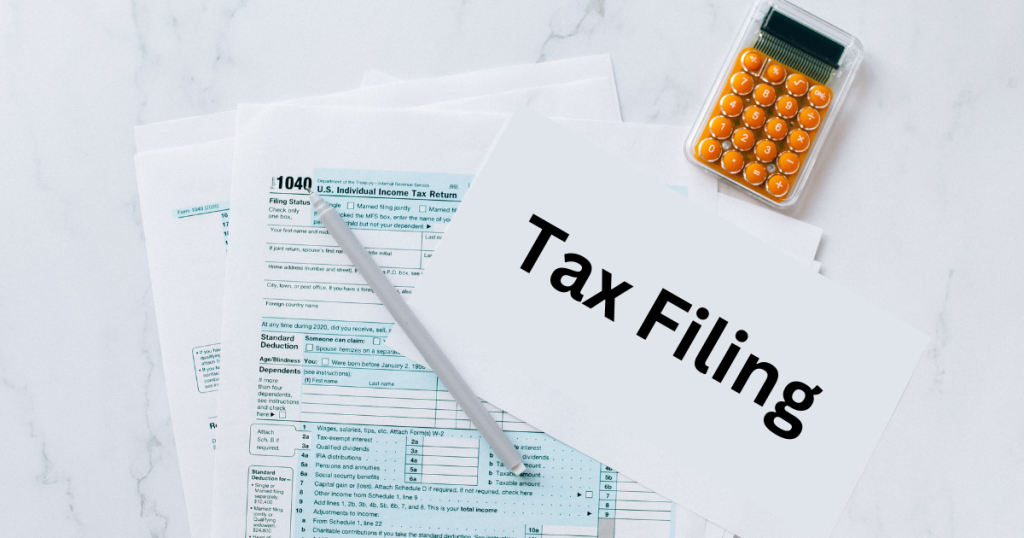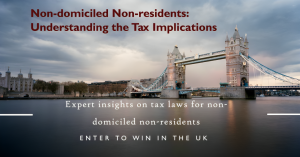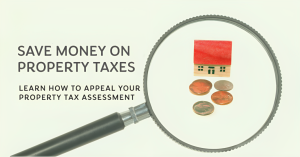Tax Filing
It’s crucial for business owners to be aware of Tax Filing: Reliefs & Allowances offered by HM Revenue and Customs (HMRC). This information can help you retain a larger portion of your earnings in a legitimate manner.
It is essential to maintain a good record of your tax obligations and make timely payments. In case of any difficulty in making payments, it’s advisable to reach out to the concerned authorities immediately.
To ensure this, our experts provide you with an overview of the same in this article. So, stay with us!
Tax-free allowances on property in UK
In order to calculate your taxable profit, it is important to take advantage of various allowances and reliefs on tax that may be available to you as a self-employed individual. One such opportunity is to deduct certain business expenses from your annual tax return.
You can deduct various expenses from tax. These include office supplies, insurance, bank fees, and heating/lighting costs for your business area, even a home office.
Research & Development Tax Credits
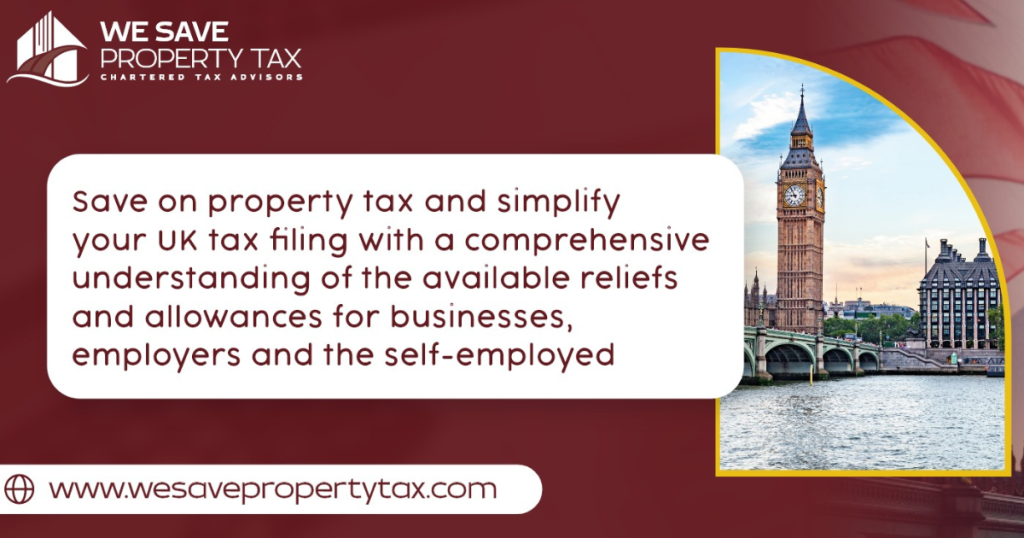
If your company works on high tech projects you could get tax breaks for research. Even if your projects don’t succeed you can still claim these benefits.
Gift Aid
Corporations and unincorporated associations can get tax benefits for donating to UK-recognized charities.
Rates Relief
Some commercial properties may receive discounts on their business rates from the local government through a program known as “business rates relief.”
Corporation Tax Relief
Reduce your taxable profits by including the expenses incurred in running your business when preparing your company’s accounts. These expenses can range from purchasing machinery and tools to other operational costs.
You may claim capital allowances for assets purchased for business use, such as equipment, machinery, or vehicles like cars, vans, or lorries.
Tax Filing - Pre-Trading Expenses
If you have recently started a business, you may be eligible to recoup some of the costs you incurred prior to beginning operations through your initial tax filing.
Tax Filing - Reclaim VAT
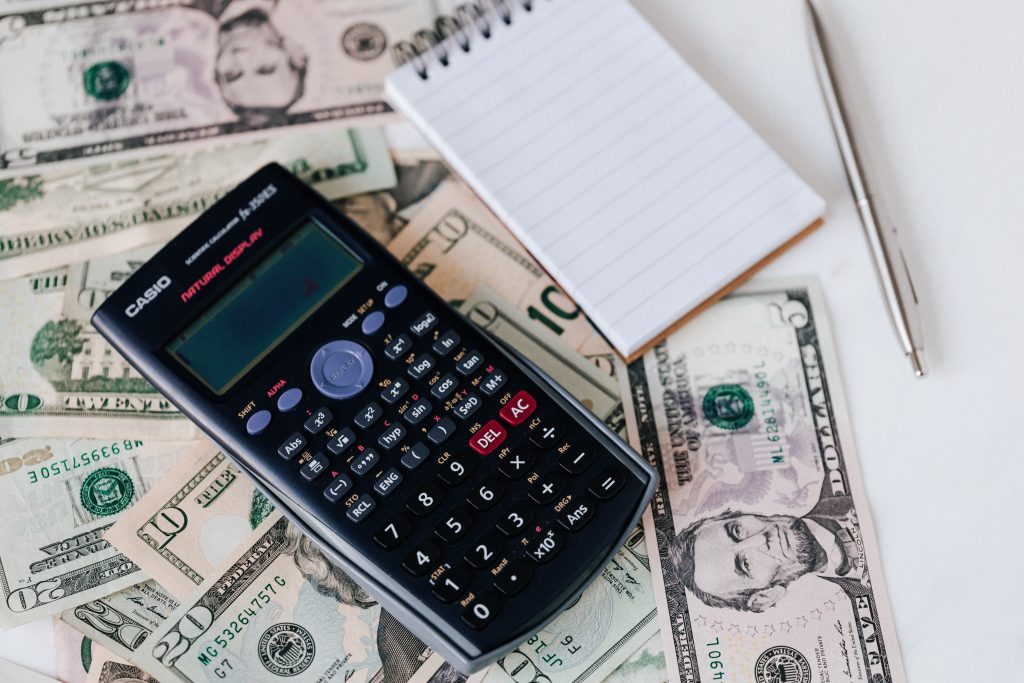
If you are a Value added tax (VAT)-registered business you can reclaim VAT on items you buy for use in your business. Do this in your VAT return.
In your VAT return, you can recover VAT on items purchased for business purposes. However, if these items are also utilized for personal purposes, you are only eligible to claim the VAT portion related to business usage.
To support your VAT reclaim, it is necessary to maintain accurate records and demonstrate the calculation of the business-related portion of a purchase. Additionally, possessing valid VAT invoices is also a requirement. In the case of reclaiming VAT on goods or services that have not yet been paid for, repayment to HMRC is necessary, referred to as “claw back.”
VAT paid on items or services purchased prior to registering for VAT can be recovered within:
- Four years for goods that are still in possession or used in the production of other retained goods.
- Six months for services.
You can get back VAT on business purchases. Must be for current registered business and linked to VAT-taxable goods/services. For new car/commercial vehicle, reclaim full VAT if only used for business. Need evidence, like employee contract.
However, personal use encompasses commuting between home and work, unless it is a temporary place of employment.
Case Study
In the case of a new car mainly used as a taxi, for driving instruction, or for self-drive hire, it may be possible to reclaim the entire amount of VAT. For used cars purchased for business use, the sales invoice must indicate the VAT.
If you use a hired car for a company car that’s unavailable. you can usually claim 50% of VAT. For a business only hire under 10 days. you can get full VAT back. Cut your Corporation Tax using the Patent Box for profit benefits.
Find out if your company is eligible for a reduced rate of just 10% Corporation Tax on profits from patented inventions and innovations.
Tax Filing - When You Employ Others
You have the possibility of obtaining the Employment Allowance, which gives eligible employers the opportunity to decrease their National Insurance obligation by a maximum of £5,000 per year.
Frequently Asked Question
Self-assessment tax is a system in the UK where individuals are responsible for calculating and reporting their own tax liability to HM Revenue & Customs (HMRC). This applies to individuals who are self-employed, have untaxed income, or receive rental income, among others.
Yes, eligible business expenses can be claimed for tax purposes in the UK as long as they are necessary for the running of the business and have been incurred wholly and exclusively for business purposes.
Yes, there are various tax allowances and reliefs available for small businesses in the UK, such as the small business rate relief, the research and development (R&D) tax credits, and the capital allowances for business assets.
Tax planning and advice refer to the process of minimizing tax liability and maximizing tax efficiency through legal means, typically with the help of a tax professional.

